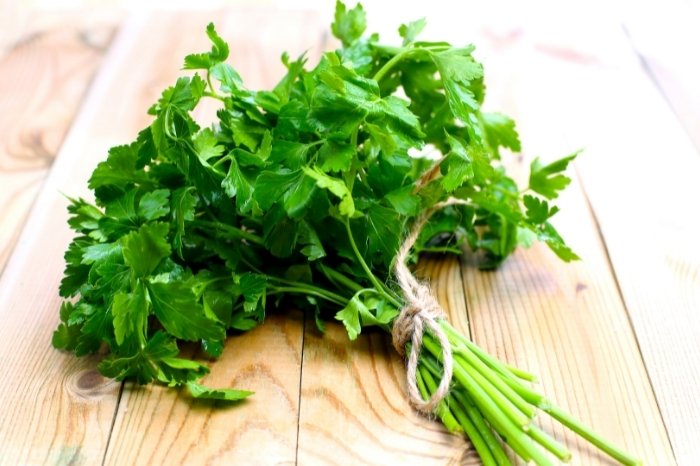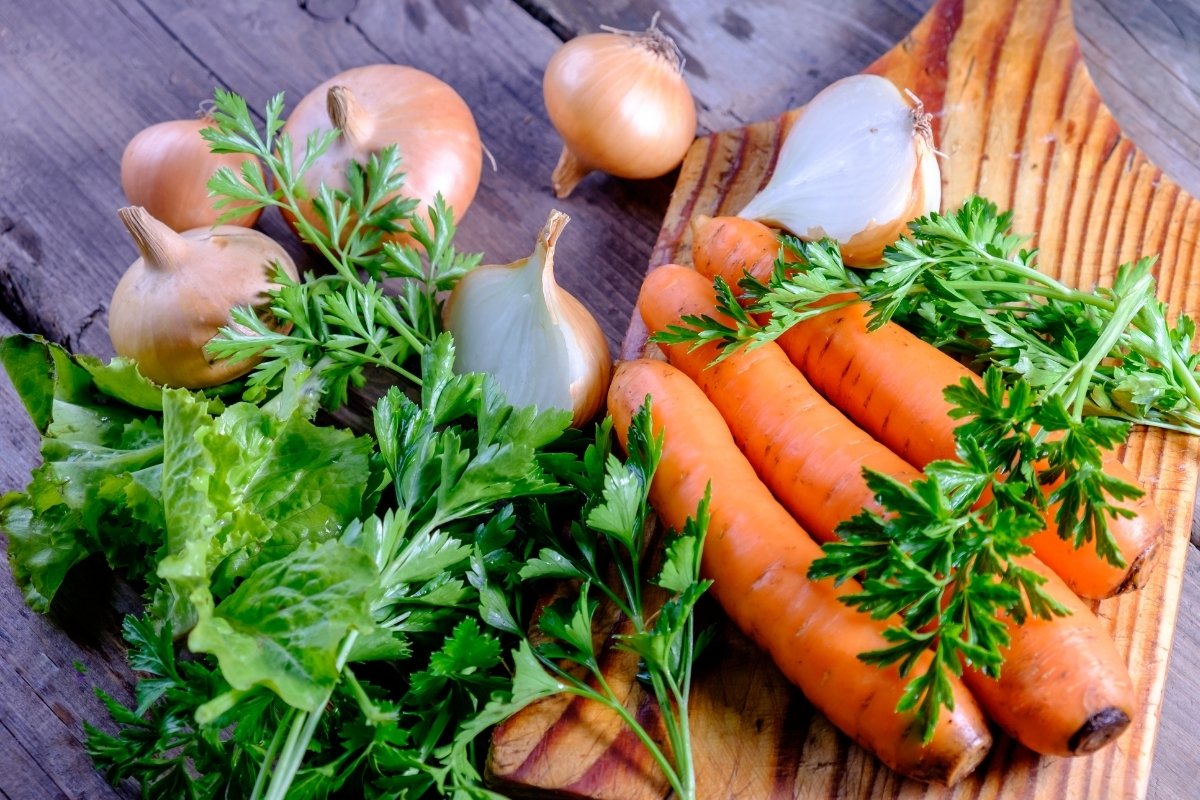Last Updated on September 14, 2022 by Griselda M.
There are a good number of plants with taproots that you will find in this article. As you choose what plants to grow, you will need to know what type of roots they have.
A taproot is a root that grows straight down into the soil. This is unlike a plant that grows straight up out of the ground and has lateral roots. The taproot has a thicker diameter than a taproot that grows upwards.
Taproots are also sometimes called “central” or “primary” roots. The term “taproot” is not used to describe the whole root system of a plant. For example, the taproots of a plant may be located at the base of the plant while other roots extend above the soil surface.
A List of Plants With Taproots
Taproot plants have no lateral roots or secondary roots. They grow straight down into the ground and have no branches. This is the most common type of taproot plant. Examples of these plants with taproots include:
1. Parsley (Petroselinum Crispum)
It grows from a thick taproot that is located at the bottom of the plant. The leaves are long and narrow, and the flowers are white. This is a biennial that grows from seed.
The seeds germinate in the spring and the plants flower and produce seeds in the fall. The plant can be harvested throughout the year. Parsley has a very strong flavor. It is usually used as a seasoning for meat dishes.

2. Carrots (Daucus Carota)
Carrots have a taproot that is located at the base of the plant. The plant has branched leaves that grow above the soil. The flowers of carrots are white or yellow, and they are produced all over the plant. Carrots are usually planted in spring. They can be harvested throughout the year.
3. Onions (Allium Cepa)
Onions have a taproot that is located at the bottom of the plant. The plant grows a thick stem that branches at the top. The bulbs grow from the stem. The bulbs contain many small onions. Onions are usually planted in the spring. They can be harvested throughout the year.
Read more about Growing Multiple House Plants In One Pot
4. Celery (Apium Graveolens)
Celery has a taproot that is located at the base of the plant. The leaves are long and narrow and grow above the soil. The flowers are white or green and form an umbrella, and they are produced all over the plant. Celery is usually planted in the spring. It can be harvested throughout the year.
5. Cucumber (Cucumis Sativus)
Cucumbers have a taproot that is located at the base of the plant. The plant grows a thick stem that branches at the top. The cucumber fruit is an annual fruit. Cucumbers are usually planted in the spring. They can be harvested throughout the year. There are three main types: slicing, pickling, and seedless.
Sow Right Seeds – Cucumber Seed Collection for Planting
6. Beans (Phaseolus spp.)
Beans have a taproot that is located at the base of the plant. It’s commonly known as an annual or perennial plant. The flowers are usually purple and they are produced all over the plant. Beans are usually planted in the spring. They can be harvested throughout the year.
7. Tomatoes (Lycopersicon Esculentum)
The plant has long thin leaves that grow above the soil. The tomatoes are usually yellow-orange and red, and they are produced all over the plant. Tomatoes are usually planted in the spring. They can be harvested throughout the year.
Check Out Can You Pour Coffee On Plants And How Does It Help?
8. Peas (Pisum Sativum)
Peas have a taproot that is located at the base of the plant. The plant grows a thick stem that branches at the top. The flowers are usually white and they are produced all over the plant. Peas are usually planted in the spring. They can be harvested throughout the year.
9. Celery (Apium Graveolens)
This is another type of celery. Celery has a taproot that is located at the base of the plant. The leaves are long and narrow and grow above the soil. The flowers are often white, and they are produced all over the plant. Celery is usually planted in the spring. It can be harvested throughout the year.
10. Fennel (Foeniculum Vulgare)
Fennel has a taproot that is located at the base of the plant. The plant has long tall stems that grow above the soil. The flowers are most often white and yellow in color, and they are produced all over the plant. Fennel is usually planted in the spring. It can be harvested throughout the year.
Take-Home – Plants With Taproots
The above list of plants with taproots is just the beginning. There are many other plants that are in the same category. If you are looking for more plants, the internet will provide you with many more options that you can grow.
Both annuals and perennials can fall in the category of plant with taproots and will grow well when provided with the right growing conditions. Let us know if you plant any taproots and how your gardening goes!
FAQs
Do All Plants With Taproots Spread When Tilted?
No. Many taproot-bearing plants do not spread when the plant is tilted, and some species have taproots that are slightly short.
Where Are Plants With Taproots Found?
Plants with taproots can be found globally. There are no specific places, as they are a common species of plant which are grown worldwide.
What is the Difference Between Taproot and Fibrous Root?
A taproot is a root that has no lateral branches and grows straight down into the soil. A fibrous root has lateral roots that grow out from the base of the stem. The taproot is woodier than a fibrous root, and it has fewer lateral roots. Taproots usually have a bulbous or swollen base.
What Plant Would Most Likely Have a Tap Root?
Many plants have taproots, starting with the ones recorded above to many other plants that are not on this list. In this list, we only recorded vegetables or edible plants. There are also many flowers and other types of plants that have a taproot.
Caroline is a gardener who loves to get down to the nitty–gritty of gardening. She proudly proclaims herself as a ‘dirt worshipper‘ and can often be found deep in the garden, covered in soil and singing to her plants. As a self–proclaimed ‘plant whisperer‘, Caroline believes that plants need love and attention just like any other living thing, and she loves to give them both. When she‘s not tending to her garden, you can often find her researching the latest gardening trends, or teaching others how to make their gardens thrive



